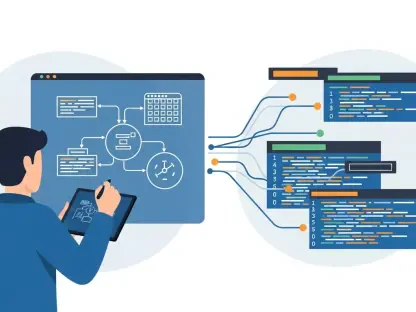The healthcare industry is undergoing a significant transformation, driven by advancements in mobile technology. One of the most promising innovations in recent years is the advent of medication tracking apps. These tools have proven to be essential for patients, caregivers, and healthcare providers, playing a pivotal role in managing medication schedules, dosages, and refills. The rise of these apps has not only enhanced medication adherence but has also led to improved overall health outcomes by providing a streamlined process for medication management. As mobile technology continues to evolve, the importance and capabilities of these apps are expected to grow, making them a cornerstone of modern healthcare.
Understanding Medication Tracking Apps
Medication tracking apps are designed to assist users in managing their medication schedules, dosages, and refills. These innovative applications typically come with features such as customizable reminders, detailed medication logs, and the ability to integrate with other health systems like wearable devices and electronic health records (EHRs). By offering these functionalities, medication tracking apps significantly enhance medication adherence, thereby reducing the risk of missed doses and ensuring consistent treatment. These apps provide substantial benefits not only to patients but also to caregivers and healthcare providers, enabling better health outcomes through accurate logging and timely reminders. As healthcare systems increasingly adopt these technologies, the efficiency and effectiveness of medication management are set to improve markedly.
The Role of Medication Tracking Apps in Healthcare
Medication tracking applications have become indispensable in contemporary healthcare primarily because of their ability to bridge the gap between patients and healthcare providers. These apps offer several critical benefits, such as sending automated reminders for medications, tracking dosages, and alerting users to potential drug interactions. By providing an increased sense of control over one’s health, these apps can significantly improve medication adherence among patients. Furthermore, healthcare professionals benefit as well, as these apps automate routine tasks, freeing up time to focus on more critical aspects of patient care. The data collected through these apps can also provide valuable insights into medication efficacy and patient behavior, allowing healthcare providers to tailor treatments for optimal results. This data-driven approach ensures that treatments are not only effective but also personalized to meet the unique needs of each patient.
Key Benefits of Using Medication Tracking Apps
Medication tracking apps address several common challenges associated with medication management, thereby improving overall health outcomes. They ensure that users receive timely reminders to take their medications, substantially reducing the likelihood of missed doses and enhancing the effectiveness of treatment plans. Beyond individual patients, these apps also offer significant support to caregivers and families by enabling remote monitoring of medication intake. This technological collaboration helps establish a robust support network, decreasing caregiver stress and ensuring proper medication management. Ultimately, this leads to better patient outcomes. For instance, caregivers can monitor adherence without physically being present, and patients can share their medication logs with doctors to receive more tailored advice.
Essential Features of a Top-Notch Medication Tracking App
Effective medication tracking apps are built with a comprehensive suite of essential features that cater to user needs. At the core of these apps is a user-friendly design that enables patients to easily log their medications, set reminders, and review their medication history. Integration with other healthcare systems, such as EHRs and wearable devices, enhances the app’s functionality, offering a holistic approach to medication management. Beyond basic functionalities, top-notch apps include educational resources, simple dosage calculators, and direct communication channels with healthcare providers. By equipping patients with relevant information and encouraging active participation in their healthcare, these features promote better medication adherence and overall health outcomes. The added functionalities ensure that the app is not merely a reminder tool but a comprehensive health management system.
User-Friendly Interface and Navigation
A critical aspect of any medication tracking app is the user experience (UX) design, which ensures that users can navigate the app effortlessly and utilize its features without confusion. A well-designed user interface (UI) is visually appealing, easy to read, and organized logically, preventing the feeling of being overwhelmed. Ensuring that the app’s layout facilitates smooth logging of medications, setting reminders, and accessing historical data is fundamental to a positive user experience. An intuitive interface encourages frequent use, which is essential for maintaining medication adherence and achieving better health outcomes. Simplified navigation and clear visuals help users of all ages and technical proficiencies effectively engage with the app, significantly boosting its adoption and sustained usage.
Comprehensive Medication Logging and Tracking
A primary feature of top-tier medication management apps is the comprehensive logging and tracking of medications. Users should be able to input their prescribed medications alongside the dosages and schedules easily. Automatic logging of each dose taken enhances the usability of the app, providing a clear overview of adherence to the prescribed regimen. Effective pill reminder systems work hand in hand with medication logging features, ensuring that users receive prompts according to their schedules and minimizing the likelihood of missed doses. Additionally, the inclusion of features that facilitate the sharing of medication logs with healthcare providers aids in monitoring patient progress and adjusting treatment plans as necessary. Such transparency and efficient tracking foster improved decision-making in healthcare, allowing for timely interventions and better patient outcomes.
Customizable Medication Reminders and Alerts
The customizability of reminders and alerts is a key feature that significantly enhances user experience in medication tracking apps. Each user has unique preferences and daily routines, necessitating the ability to personalize notification settings. Users should have the freedom to select notification sounds, frequency, and timing that align with their lifestyle. Refill reminders are another critical feature, alerting users when their medication supply is low and helping them manage resupplies seamlessly through the app. This personalization increases the usefulness of reminders, ensuring they serve as helpful aids rather than annoyances, and thereby facilitating better adherence to medication schedules. Personalized alerts help create a sense of ownership and responsibility towards one’s health, making medication adherence a more manageable and less intrusive task.
Integration with Healthcare Systems
The healthcare industry is experiencing a major shift, largely influenced by cutting-edge advancements in mobile technology. Among the most promising innovations of late are medication tracking apps. These digital tools have become essential for patients, caregivers, and healthcare providers alike. They play a vital role in managing medication schedules, dosages, and refills, ensuring that patients stick to their prescribed regimens. The proliferation of these apps has not only boosted medication adherence but has also led to better overall health outcomes. This is achieved by offering a more streamlined and efficient process for managing medications. With mobile technology continually advancing, these apps are expected to further evolve in their importance and capabilities. Future developments could include enhanced features such as integration with wearable devices, real-time health monitoring, and personalized medication reminders. By incorporating these advancements, medication tracking apps will likely become even more integral to modern healthcare. They promise to support not just medication management, but also broader aspects of patient health, making them indispensable tools in the ongoing effort to enhance healthcare delivery and patient well-being.









